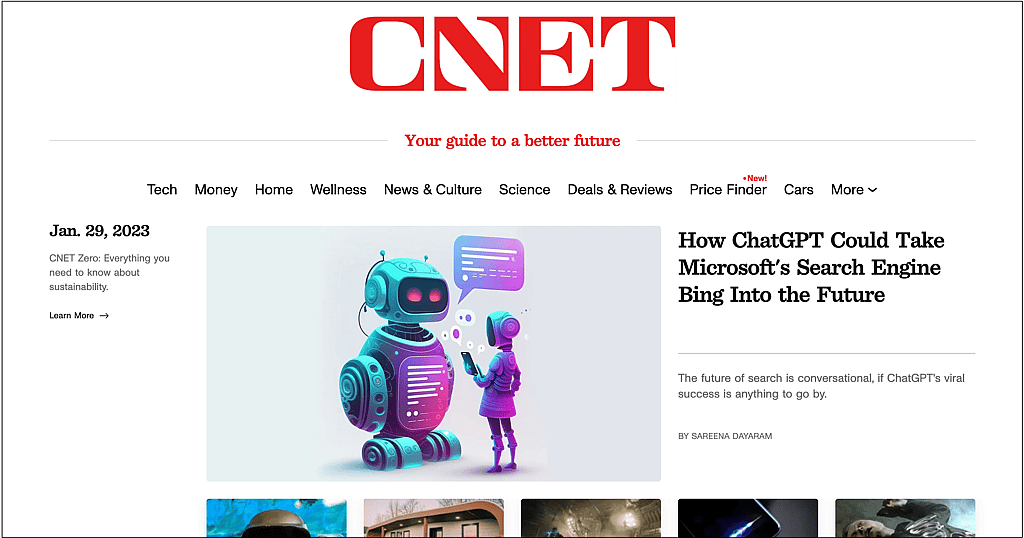The CNET case: AI-powered content creation and the challenges it brings

The potential of AI in content production isn’t questioned by anyone. What is being questioned more and more is the value that one should put on content created by an AI instead of a human.
What the online media CNET is currently going through is a great example of that, and content marketing teams should take note as Ai slowly (or quickly) makes its way into the daily lives of copywriters (at first).
Over the past decade, AI has made its way into newsrooms, especially in the business sections of certain media, where coverage of rates, quarterly results and the like can sometimes be seen as boring by the average human journalist.
This is why The Associated Press started using Wordsmith in 2014.
They announced it and made it clear back then that it would be used for business reports (and they later added sports results).
Flash-forward to today, and the CNET newsroom staff is going through period filled with turbulence as more and more content is produced using AI tools. Why is there turbulence? Because internally, what isn’t clear is which pieces of content are produced by staff and which are by AI tools.
“Internally, there has been unease among CNET staff at their corporate owners’ use of artificial intelligence — though staff was assured the current test is limited in scope. But layoffs and restructuring, coupled with the lack of clarity on the use of new tools, are causing some to worry about what the creep of AI signals for the venerated site so many journalists were drawn to.”

There are two things to consider when reading the article:
- How AI-powered content creation tools might be considered by some as a cheaper alternative that human content creators.
- The trust readers will eventually put behind content marked* as having been produced using “Automated tools”
* and this is when these content assets are actually marked as such, as we can see in the article that CNET attributes automated articles to a human employee.
Introducing these types of tools in your daily content marketing program can be of great help to bring your content marketing efforts to the next level, but any content marketing leader needs to be aware of the potential impact on teams AND audiences of the use of such tools.


